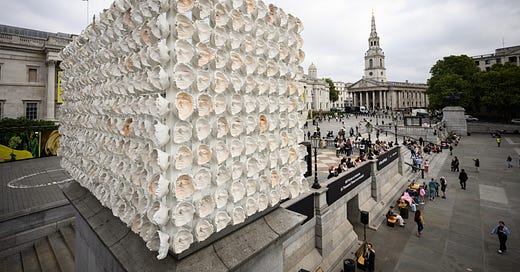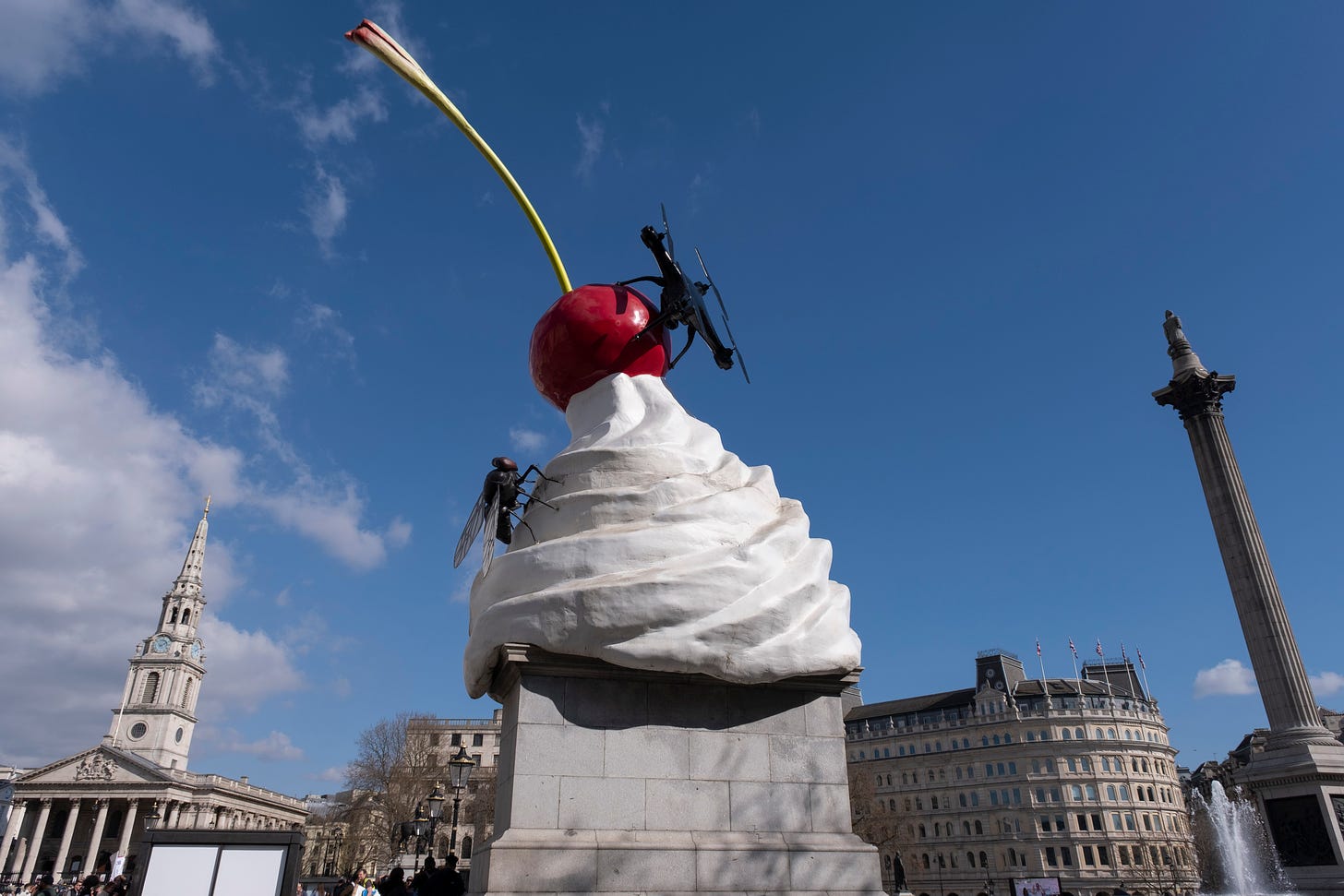Why is modern public art so bad?
The latest piece to grace the fourth plinth in Trafalgar Square is banal and propagandistic. We should expect more for our public spaces.
The works on display at New York’s Museum of Modern Art (MOMA) have been curated with care. On my recent visit I began on the fifth floor, where you can admire art from the 1880s until the 1940s. On the fourth floor you will find works from the 1950s to the 1970s, and then two floors below are the collections from the 1980s until the present day. I wonder whether this arrangement is deliberate; the literal descent of the visitor from one floor to the next reflecting the figurative descent of artistic quality through the century.
And so while on the upper floor you can admire the melting clocks of Salvador Dalí’s most famous and haunting work, The Persistence of Memory (1931), and René Magritte’s The Lovers (1928), a curious meditation on romanticised desire, by the time you reach the second floor there are some cuddly toys glued together into clumps which are dangling from the ceiling. I didn’t bother to check who was responsible for this nonsense.
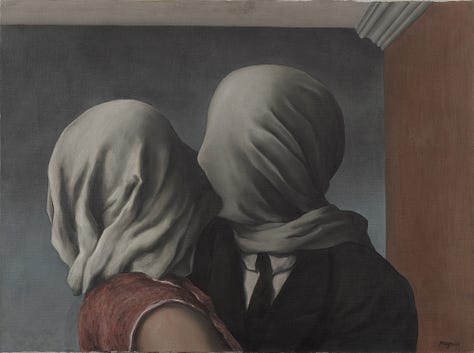
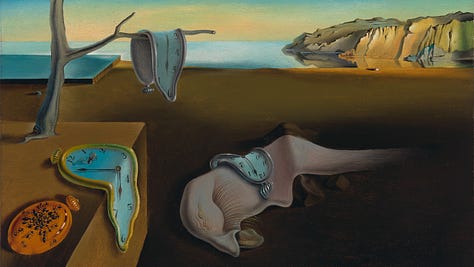
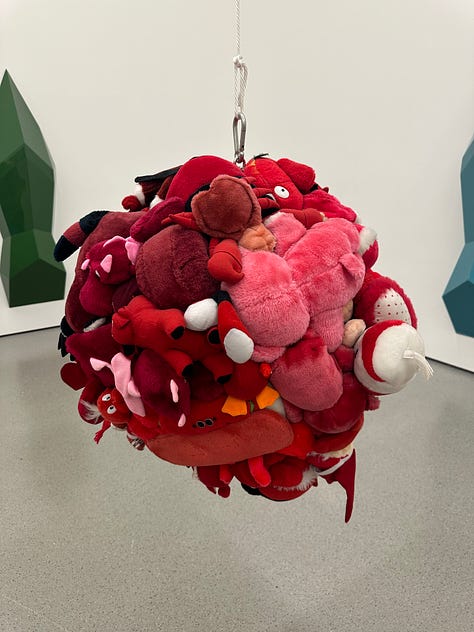
I have often tried to defend some of the more intriguing efforts at modern conceptual art, but I also recognise that we must be able to admit when art is simply bad. I felt the same when I saw the most recent sculpture to grace the fourth plinth in Trafalgar Square. It is a piece by Mexican artist Teresa Margolles entitled Mil Veces un Instante. It consists of over seven-hundred death masks of trans, non-binary and gender non-conforming people arranged into a cuboid. The faces are meant to represent those who have been the victims of violence, including the artist’s friend Karla who was murdered in Juárez in December 2015.
I don’t doubt the sincerity of the passion behind the project, or how the tragedy of this death informed the vision of the piece, but as a work of art it is banal. Like many conceptual pieces inspired by voguish identity politics, it is propagandistic and uninspiring. The Pink News has claimed that those who dislike the piece are “bigots”. I would say they simply have good taste.
I suppose it is an improvement on Heather Phillipson’s godawful “The End”, a sculpture of a dollop of whipped cream with a cherry, a drone and a fly on the top which was finally taken down from the fourth plinth in 2022. I doubt that anyone except the artist and her close family members were disappointed to see it gone. While I understand the subjectivity of such matters, surely we should be aspiring to higher standards when it comes to art in public spaces?
Consider what happened when Benvenuto Cellini’s masterful Perseus with the Head of Medusa was unveiled in the Piazza della Signoria in Florence in the mid-sixteenth century.
Keep reading with a 7-day free trial
Subscribe to Andrew Doyle to keep reading this post and get 7 days of free access to the full post archives.

